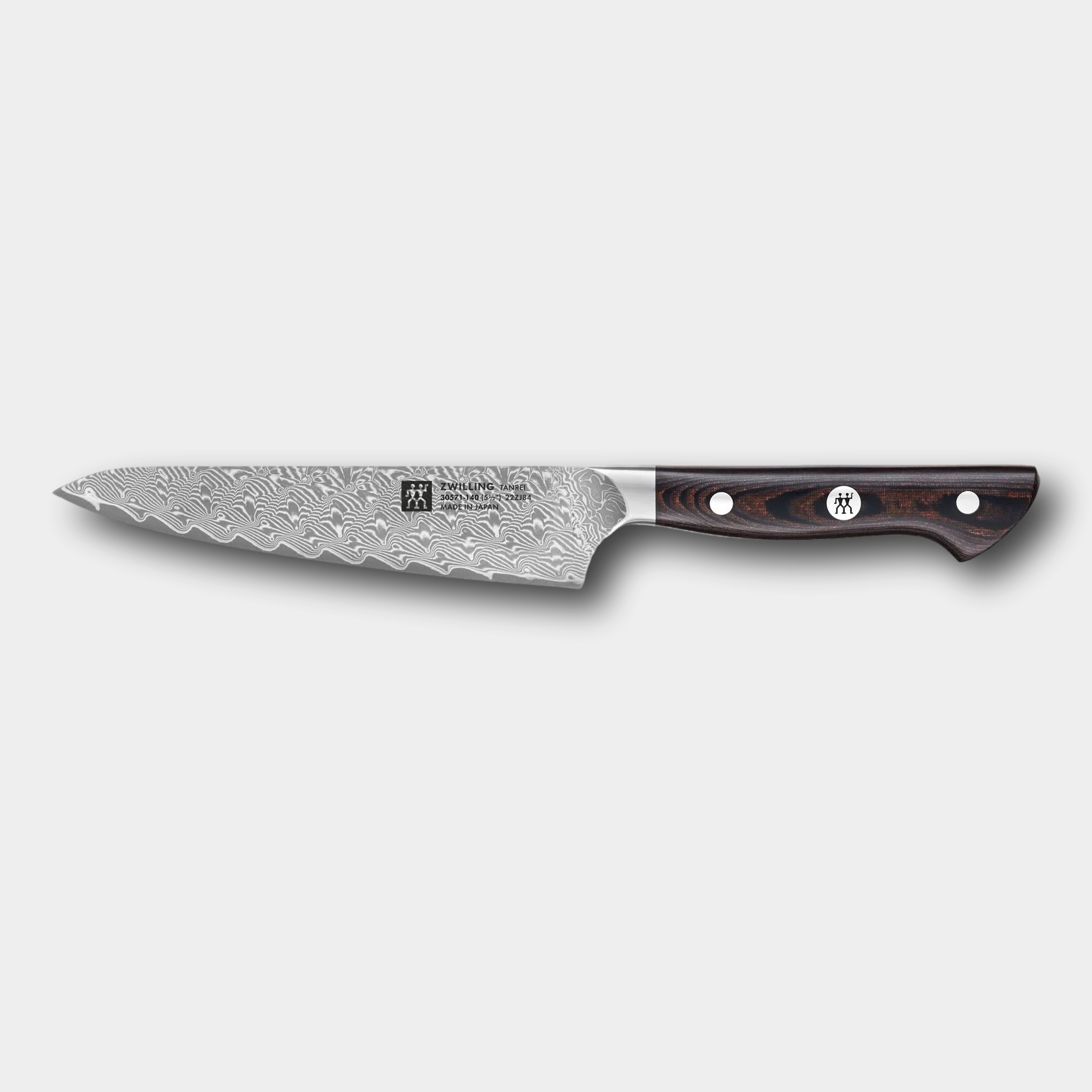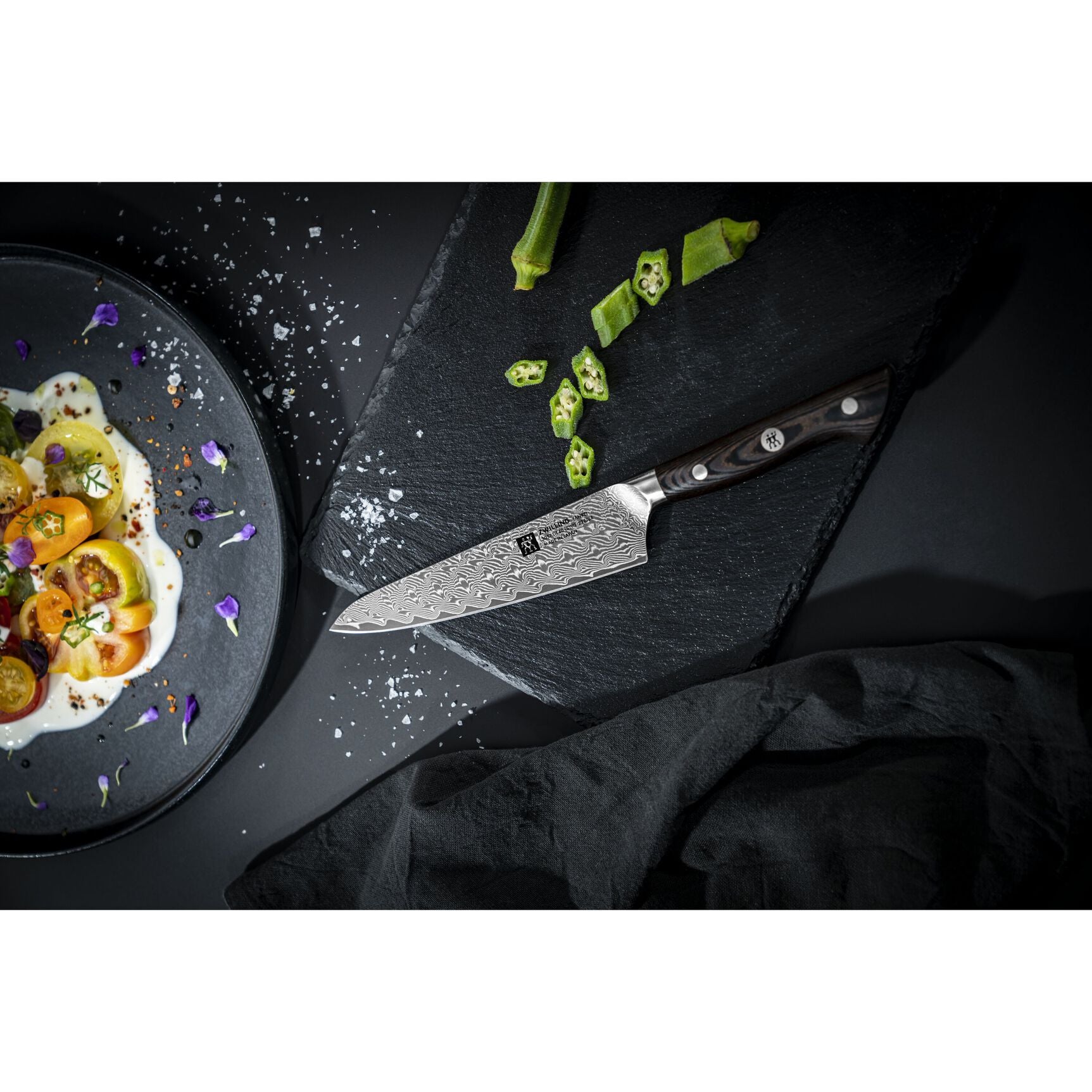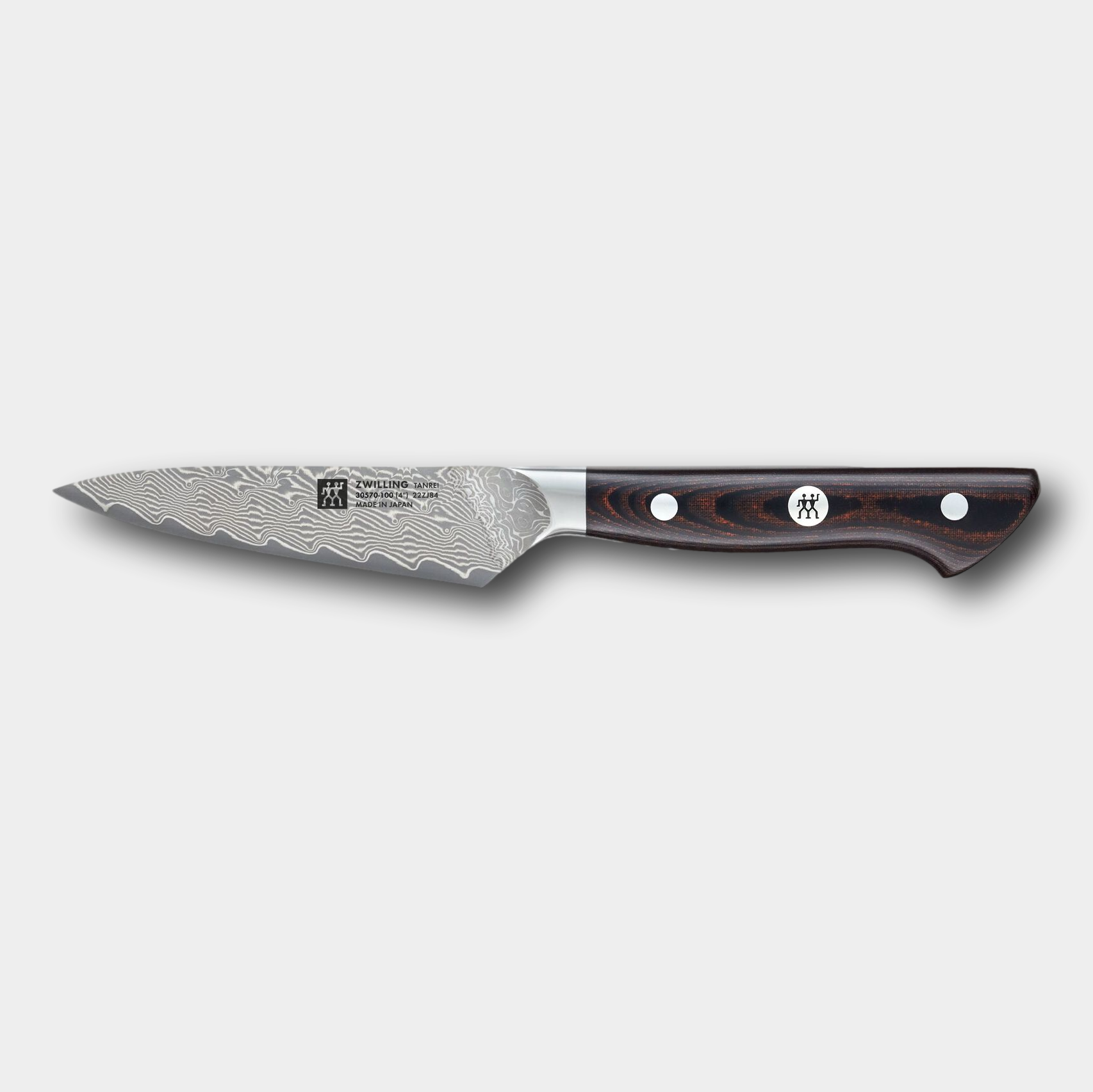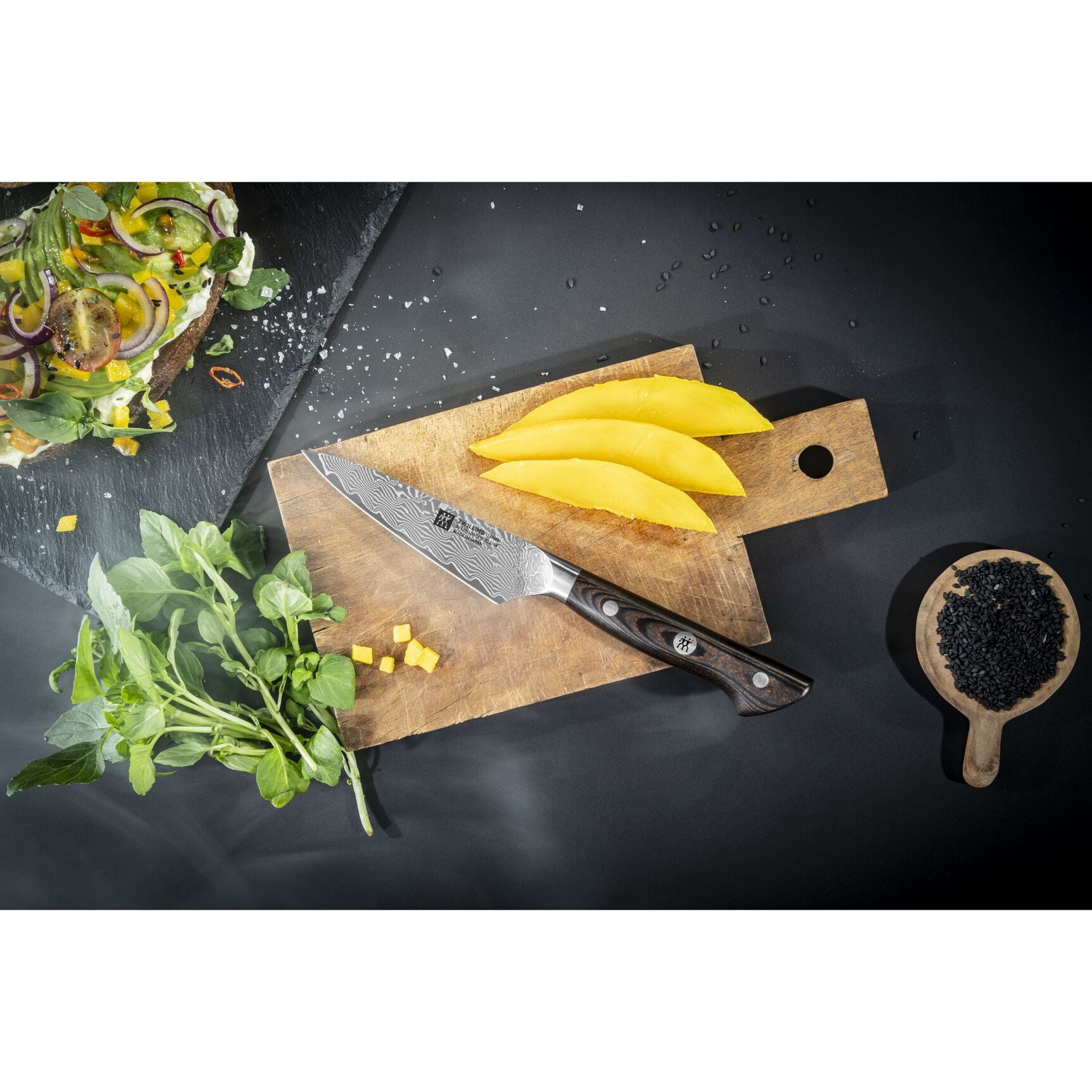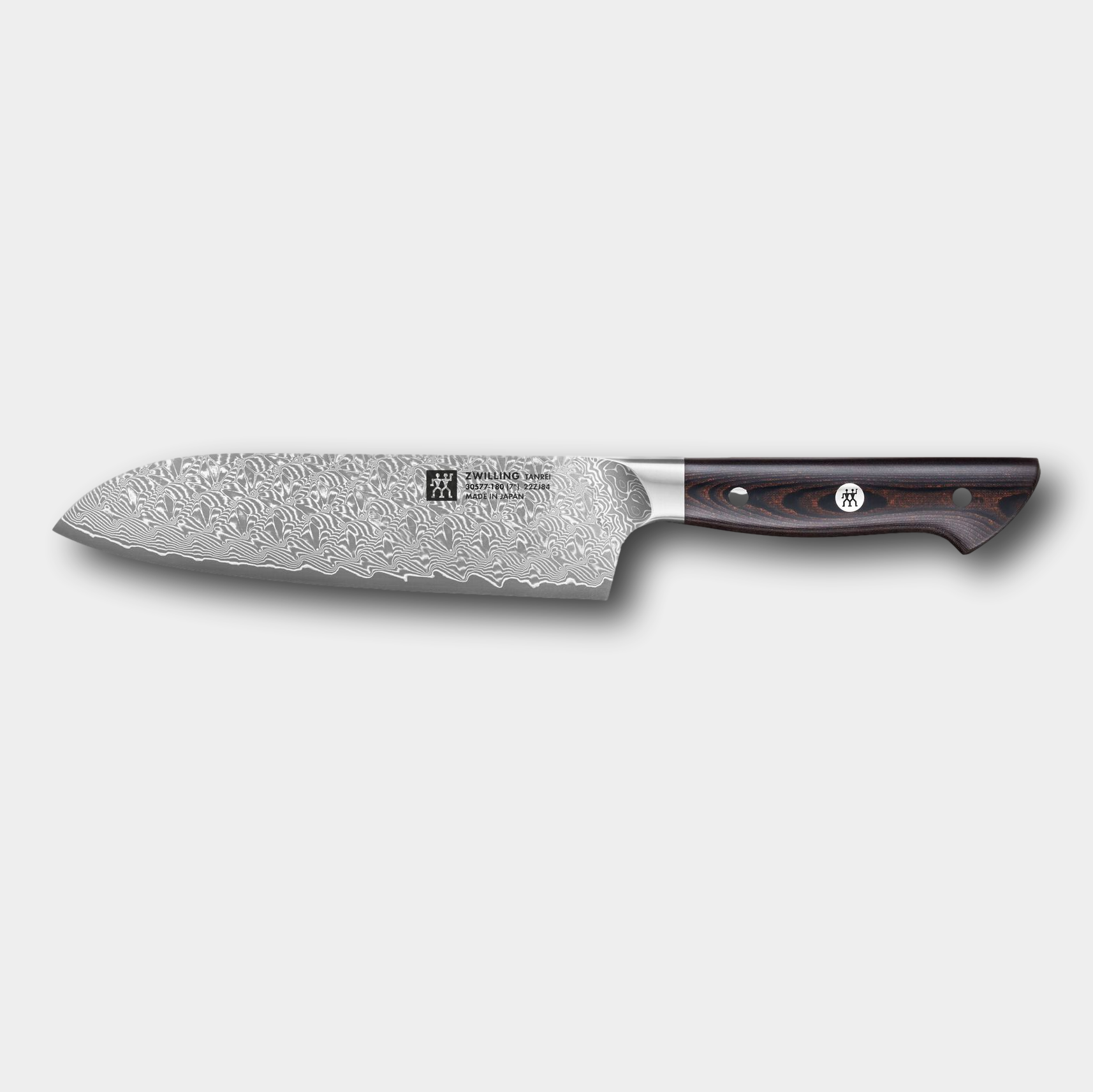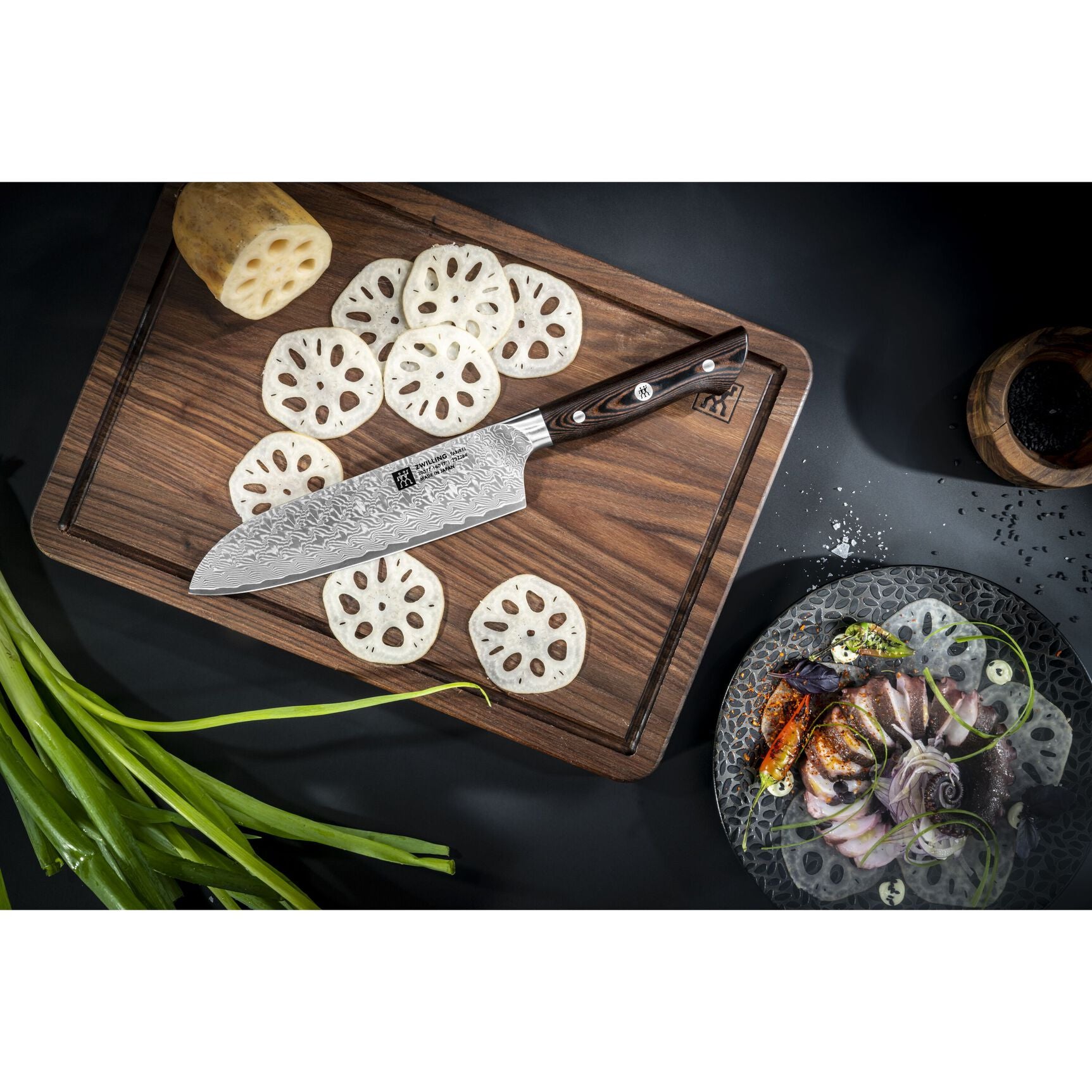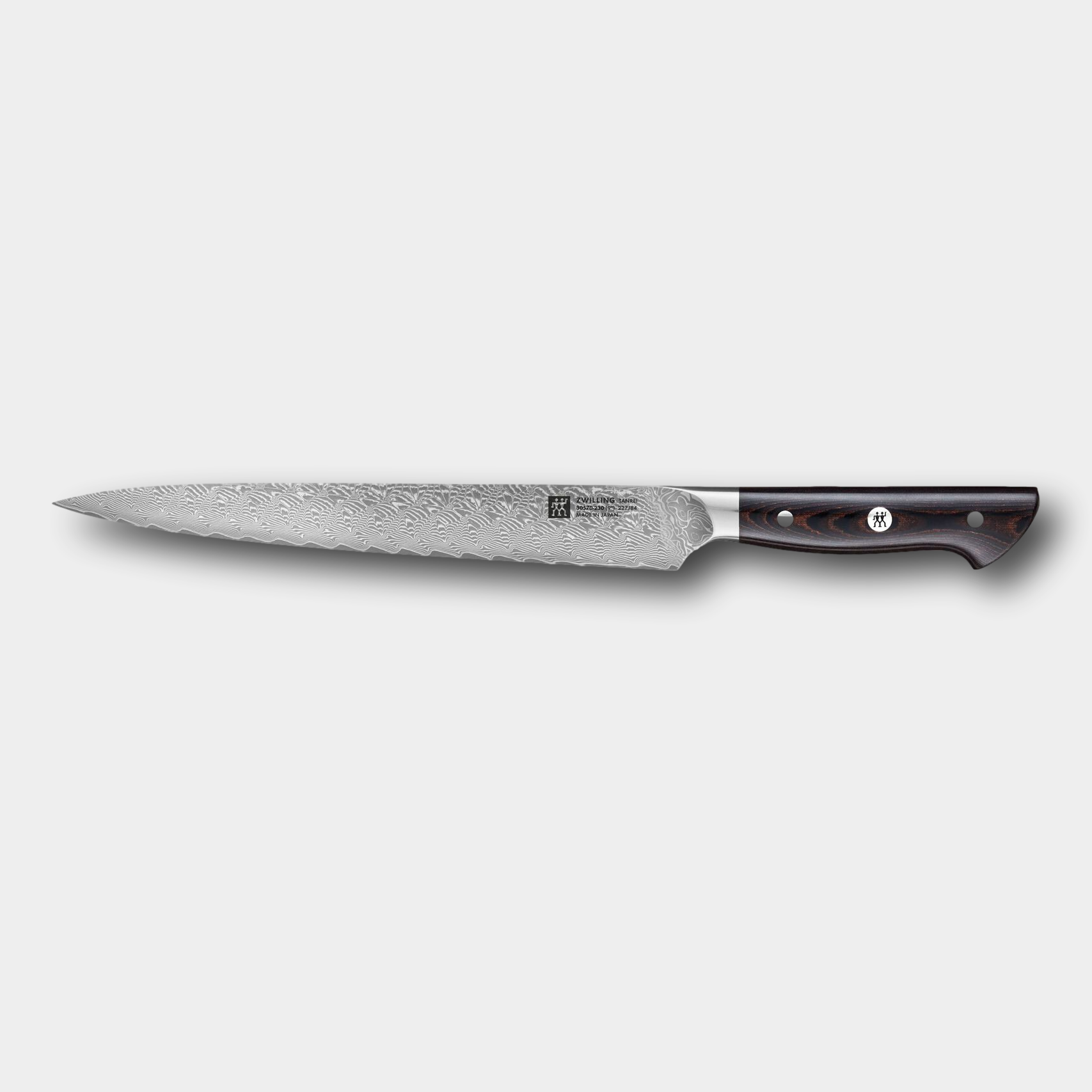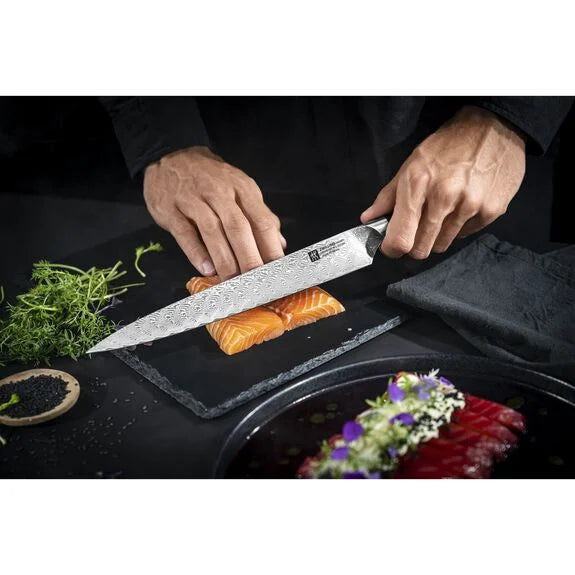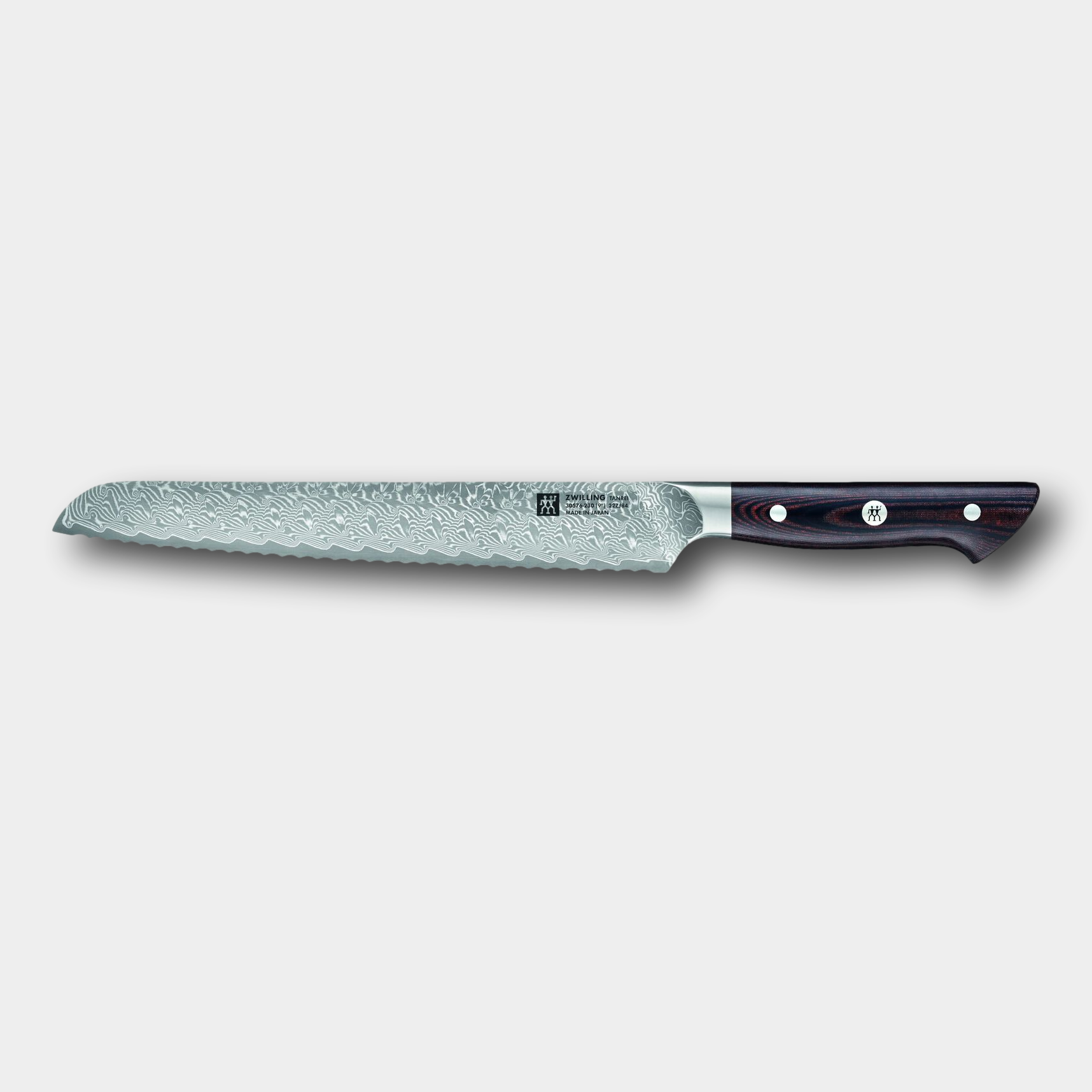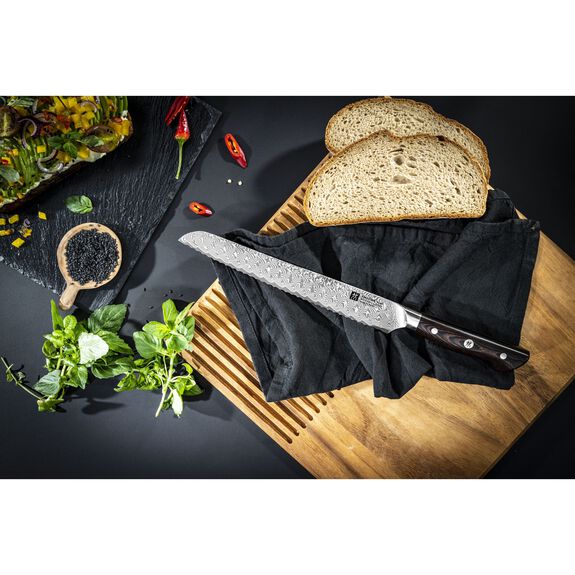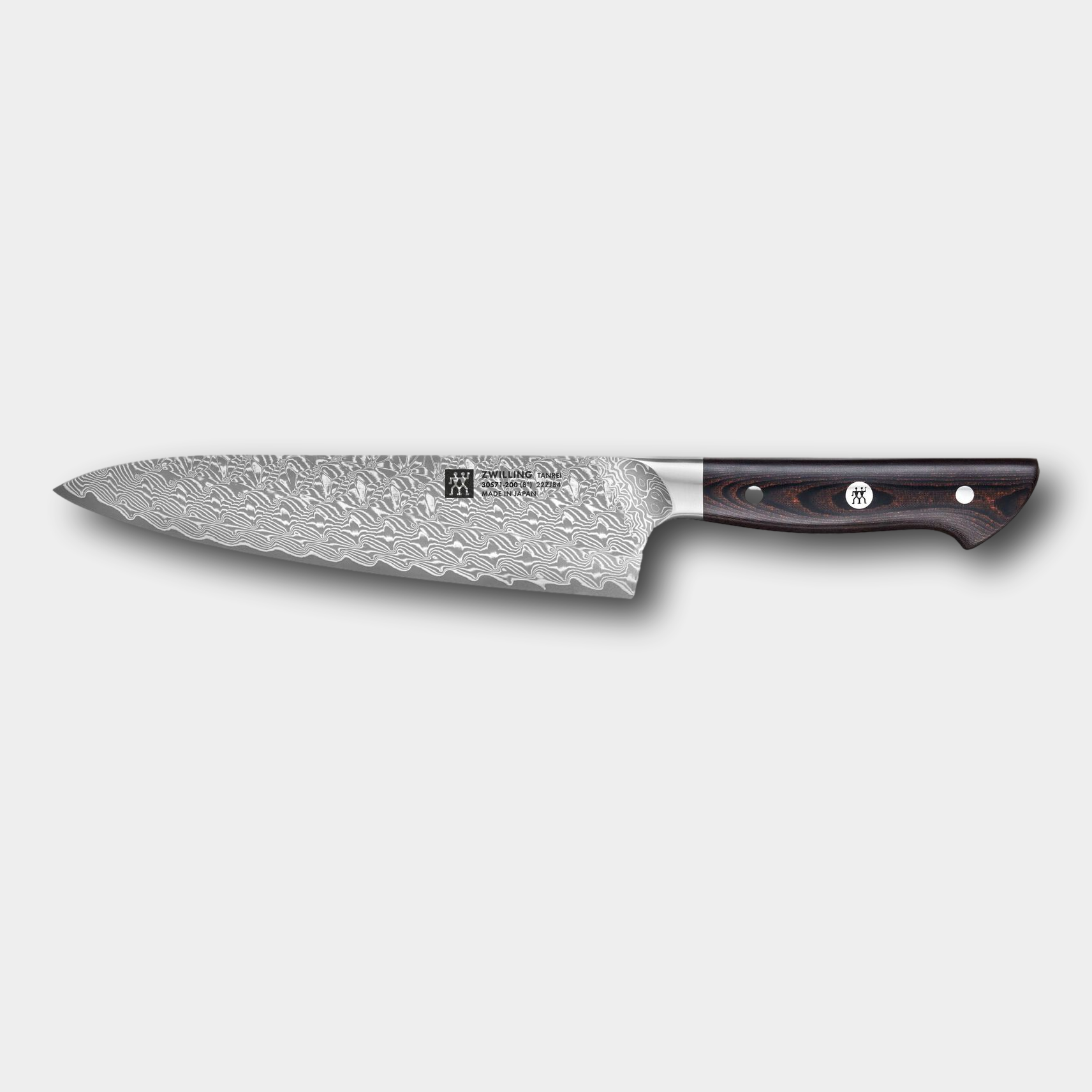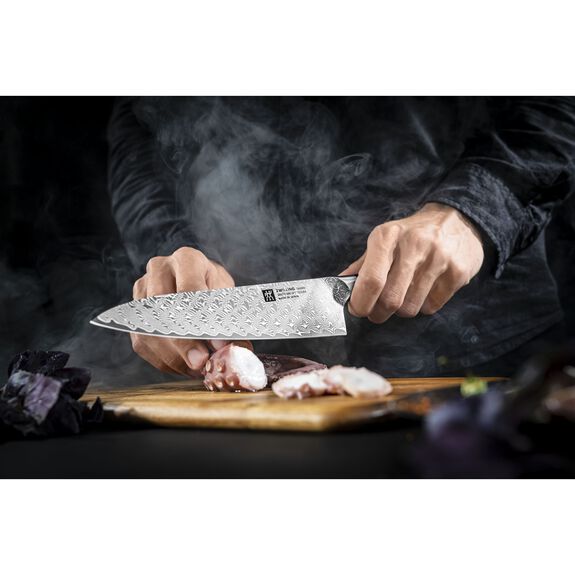
ZWILLING TANREI
Built In Japan With German Engineering
Step into the world of exceptional culinary craftsmanship with the Zwilling® Tanrei knife series, where the soul of Japanese artistry and the rigour of German engineering converge. Crafted in the heart of Japan, each knife in this exquisite six-piece collection features ultra-hard blades sharpened with the traditional Honbazuke technique for razor-sharp precision. Boasting 101 layers of premium steel and an astounding hardness of 63 HRC, the Tanrei series not only promises durability but also showcases striking damask blade patterns that are true works of art. These aren’t just knives; they are the blend of centuries-old traditions and modern innovation, making them an indispensable tool for any kitchen
For those who take cooking seriously, the importance of a reliable chef's knife cannot be overstated. The Tanrei knives excel in performance, with a weight and balance that feels just right in the hand, ensuring each cut is smooth and precise. Whether you're a professional chef or a culinary enthusiast, embracing the Tanrei series means choosing unparalleled quality and style. Don't settle for ordinary, transform your culinary experiences with the unparalleled elegance and functionality of the Zwilling® Tanrei collection.
Key Features
- Zwilling Tanrei Rockwell Rating 63 HRC
- Expert CraftsmanshipJapanese artistry with the brilliance of German engineering
- Ergonomic Handles: Ergonomically designed handles offer balance and control
- Material Utilises Zwilling's new premium steel formula
FAQs
No, the ZWILLING Tanrei knife series is authentically Japanese and actually manufactured in Japan itself. It represents a perfect fusion of Japanese traditional craftsmanship and German precision engineering. This collection features a six-piece set with ultra-hard blades, each meticulously sharpened using the time-honored Honbazuke method.
Zwilling knives, renowned for their quality and precision, are used by a wide range of individuals, from home cooks to professional chefs. Here are a few notable users, including celebrity chefs:
- Gordon Ramsay: The famous British chef, known for his fiery temper and exceptional culinary skills, has been seen using Zwilling knives in various settings. His preference for high-quality kitchen tools aligns well with Zwilling's reputation for precision and durability.
- Jamie Oliver: Another well-known British chef and restaurateur, Jamie Oliver, has also been associated with using Zwilling knives. Oliver's approach to cooking, which emphasizes simplicity and quality ingredients, is complemented by the reliable performance of Zwilling knives.
- Culinary Schools: Many culinary schools around the world, including prestigious ones, often equip their kitchens with Zwilling knives. These schools recognize the importance of providing their students with top-notch tools to learn and practice their culinary skills.
- Professional Chefs and Restaurants: Numerous professional chefs and high-end restaurants globally prefer Zwilling knives for their reliability and precision. These chefs require tools that can withstand the rigors of a professional kitchen and maintain their sharpness and efficiency over long periods.
- Home Cooks and Enthusiasts: Zwilling knives are not just for professionals; they are also popular among home cooks and cooking enthusiasts. The brand offers a range of knives that cater to various needs and skill levels, making them a preferred choice for many who are passionate about cooking at home.
Maintaining your Zwilling knives involves several essential practices to ensure they stay sharp, durable, and in top condition:
- Cleaning: Always wash your Zwilling knives by hand with warm water and mild detergent immediately after use. It's important to avoid using the dishwasher, as the harsh environment can damage both the blade and the handle over time. After washing, dry the knives completely with a soft cloth to prevent any rust formation.
- Honing: Regular honing is key to keeping your Zwilling knives sharp and maintaining their edge. Use a honing steel before or after each use to realign the blade's edge. Hold the steel vertically and gently slide the knife down and across the steel at a 20-degree angle.
- Sharpening: In addition to regular honing, your Zwilling knives will need periodic sharpening, typically once or twice a year depending on how frequently you use them. You can sharpen your knives using a whetstone, a handheld sharpener, or opt for professional sharpening services.
- Storage: Proper storage is crucial for the longevity of your knives. Store your Zwilling knives in a knife block, on a magnetic strip, or within protective sheaths. This not only prevents the blades from dulling but also helps avoid accidents. Storing knives in a drawer is not recommended, as they can easily get damaged.
- Cutting Surface: To maintain the sharpness of your knife edges, always use wooden or plastic cutting boards. Cutting on hard surfaces like glass, metal, or stone can quickly dull your knives.
- Avoid Misuse: Remember that Zwilling knives are specifically designed for cutting food. Avoid using them for any non-food related tasks, as this can damage the blade and potentially void the warranty.
- Handle with Care: Always be mindful of the knife's balance and handle it with care. Avoid dropping or carelessly tossing your knives, as this can lead to damage to both the blade and the handle.
Shop at Cotswold Knife Company with confidence, knowing we are a verified stockist of Zwilling knives.
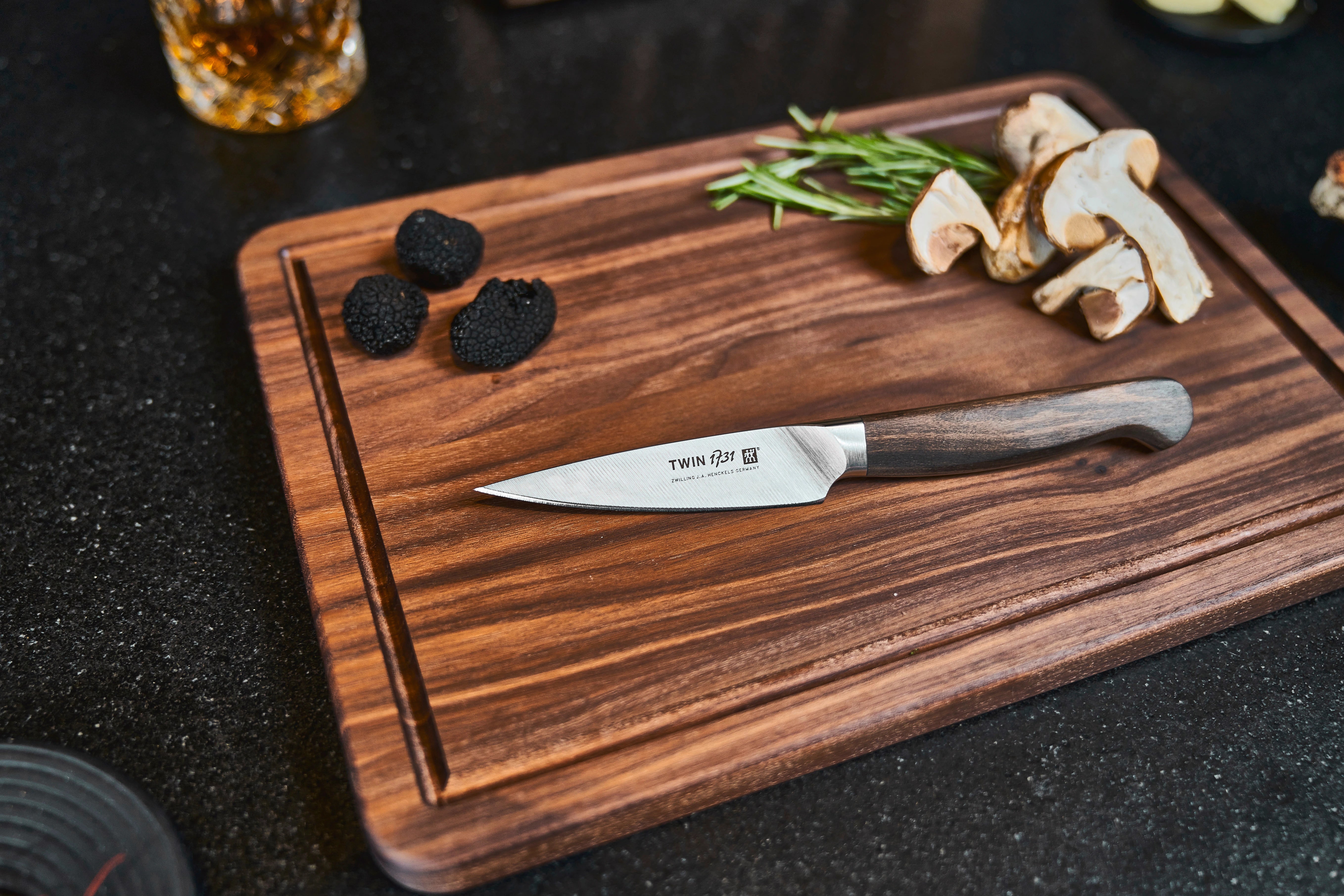
Our Full Buying Guide For Zwilling Knives
The Cotswold Knife Co
Not sure which Zwilling series suits your cooking style? Our in-depth buying guide compares Pro, Gourmet, Tanrei, and TWIN 1731 side by side. Discover how each knife feels in the hand, what it excels at, and which one is best for your kitchen.


